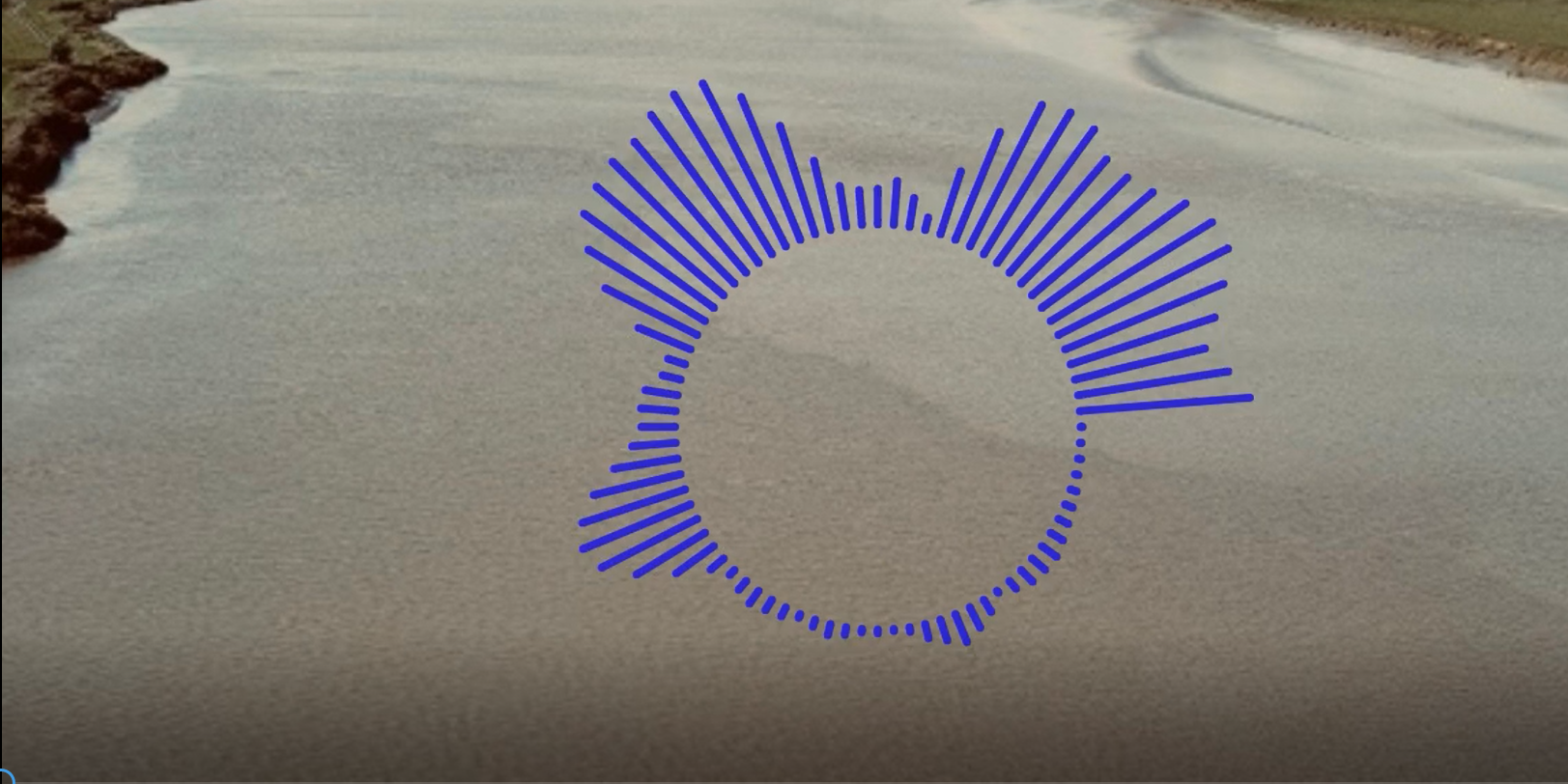Severn Worlding
Still from ‘Drowning Backwards’ audiogram.
An introduction to my long poem soundscape ‘Drowning Backwards’ currently on show at the Severn Worlding exhibition, SVA in Stroud, UK.
Anyone who knows me knows that I love water. I write about it often (my first pamphlet described a year in the life of a lake) and I swim in it outdoors all year round. I think that when I die the chemical signature in my bones will name the Thames and Severn, Churn and Frome, the marrow of upland pastures, mill race and outflow. My ancestral line of dockers loading and unloading cargo.
Water is a name for memory. It is where our forebears drank, swam, bathed, worked, travelled. It stands for both a boundary and connection. Water is older than light.
Water is always moving, always made, always already elsewhere.
Poster for Severn Worlding at SVA Gallery, Stroud, Gloucestershire
I observed the River Severn every day across the Vale for a year before writing about it, meticulously taking notes on my phone as I walked, capturing texture, colour, mood. When I came to writing ‘Drowning Backwards,’ it came tumbling out one night in January 2021 and I knew instantly that it could not be contained on the page and needed to live in some kind of soundscape.
I worked with the field recordist and producer Joff Elphick and my friend and musician Oonagh Davies - we are now otherwise known as The Phonograph Collective - to bring the piece to life, using recordings from the riverside and weaving it with voice and an old folk song which you can hear in the background if you listen closely. The text is now on show in the gallery on two A0 poster panels linked via a QR code to the soundscape. The result is, I hope, mesmeric.
My approach to curation… final proof of the poetry posters (with dog for scale)
‘Drowning Backwards’ reimagines the story of Hafren/Severn/Sabrina first told in Geoffrey of Monmouth’s History of the Kings of Britain (1136) which recounts how one of the first King of the Britons, Locrinus, fell in love with Estrildis, a Hun prisoner of war. He kept her underground in a cave and after seven years of their affair, Estrildis gave birth to a daughter she called ‘Habren,’ another name for Hafren/Severn/Sabrina. Discovering her husband’s adultery, Locrinus’s wife – Gwendolen – raised an army, killed her husband and drowned Habren and Estrildis in the river in revenge.
Reading at the private view. Patricia Brien’s work on the wall behind.
As well as reaching back to one of the founding myths of Britain, the poem connects with the goddess worship cults that were indigenous to the iron age Dobunni and hybridised in Romano-Celt culture – which speak to different ways of connecting with the land. In my poem, Sabrina is unhinged from the door that shut her voice away and she joins in this exhibition with the other Severns imagined here in the minds of my fellow artists Su Fahy, Mair Hughes, Tara Downs, Carolyn Black and the brilliant artist and curator Patricia Brien who brought us all together. Sabrina is a polyphonic force, multivocal, un-contained.
Big enough and continuous to hold all of our lives, our deaths.
Her breath is carried by water.
Severn is another name for love.
Severn Worlding is on at the Stroud Valley Artspace Gallery, John Street, Stroud, 1st - 10th July 2022. Listen to the soundscape below.
‘Ffont Pumlumon’ by Mair Hughes





